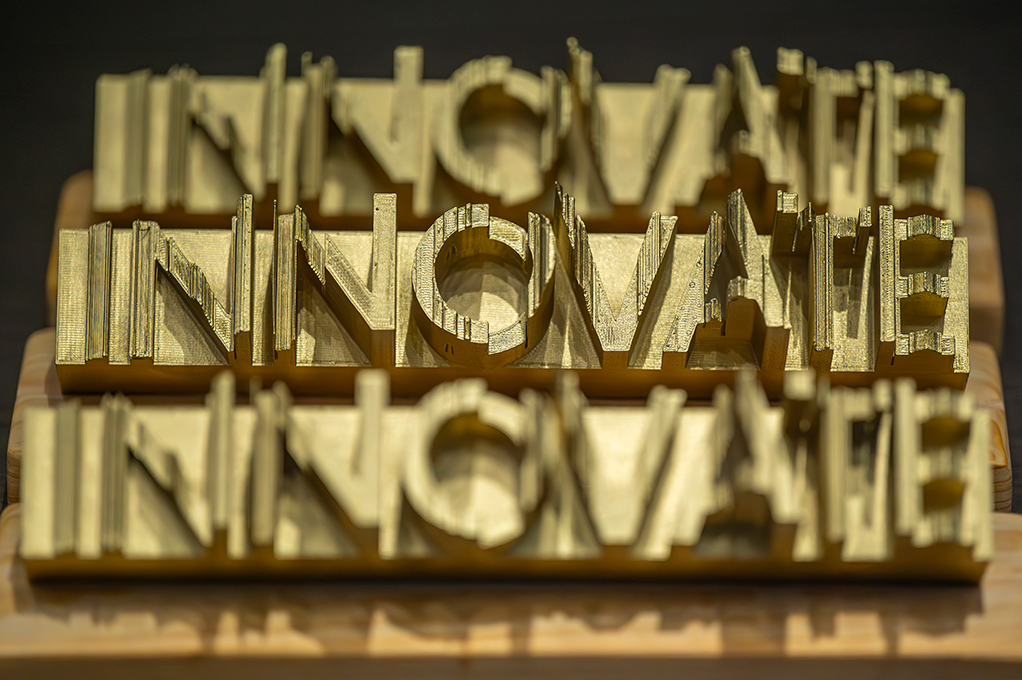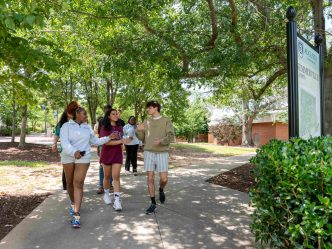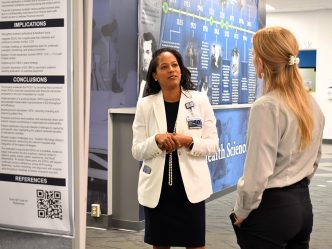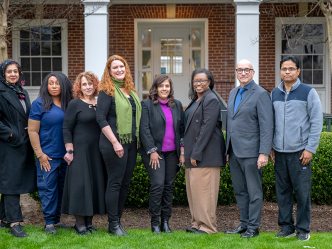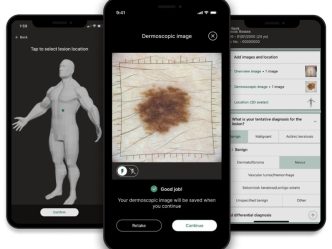The 2025 Innovate Pitch Competition was bigger than ever this year, expanded to include the community beyond Augusta University. Thanks to a new title sponsor, Vinea Capital, organizers invited entrepreneurs and members of the public, not just AU students, to submit their ideas.
A record number of 40 teams or individuals submitted pitches. Those ideas went through preliminary rounds of judging, and the top 25 were chosen to present at the pitch competition on March 27 at the Georgia Cyber Innovation and Training Center.
Necessity is the mother of invention
Shaun Andrews found out about the competition from some friends who live in Augusta. Andrews pitched Mind HAC, an AI app designed to help children with autism, and won the new entrepreneur award. Andrews describes his app as a sort of Spotify for autism. A behavioral therapist who works with children with autism, he says he uses Mind HAC every day.
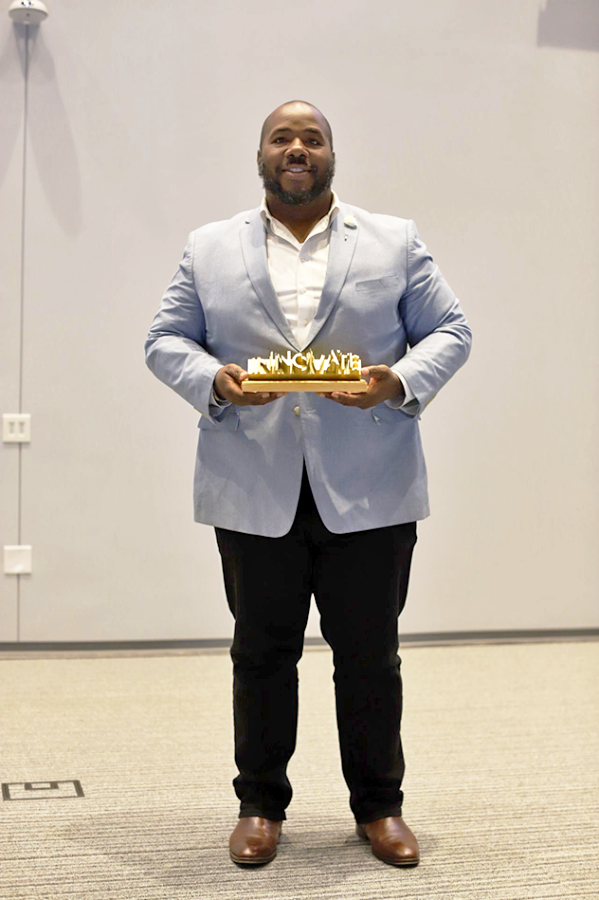
“With autism, one of the things I noticed was that a lot of the kids are really impacted by music. So even when working with kids who are nonverbal, we would put on music and just see them light up. And I thought, ‘How can I utilize music and incorporate therapy?’ That’s how I came up with the idea,” said Andrews, who is based in Charlotte, N.C. “We use AI to create music; we use it to analyze data. Individuals log in to the website and answer questions around the behavior of their child. Then channels are created that are specific to those behaviors – it’s music, it can be spoken words, sound waves. We track that data to develop analytical models of what’s going on with that kid. It helps with the care plans, helps support the parents in the home, and it can be used 24 hours a day, seven days a week.”
Chandler Covert, a physician assistant student in the College of Allied Health Sciences set to graduate this summer, won in the graduate student category for Easy Dose It – his prototype for an adaptable medicine dispensary designed to help people like his father who suffered a debilitating stroke. It robbed the former Marine of full mobility and, with that, much of his independence. Covert and his mom have been trying for years to come up with tangible things to restore some of that devastating loss.
“My dad is so proud; he’s proud of me for literally just being alive. But when I told him that I was coming to do this, he was honestly blown away because he knows the idea came from caring for him,” Covert said. “Of course, he is just proud of his kid for actually pursuing something to make things better for people like him, because he knows how that helplessness feels.”
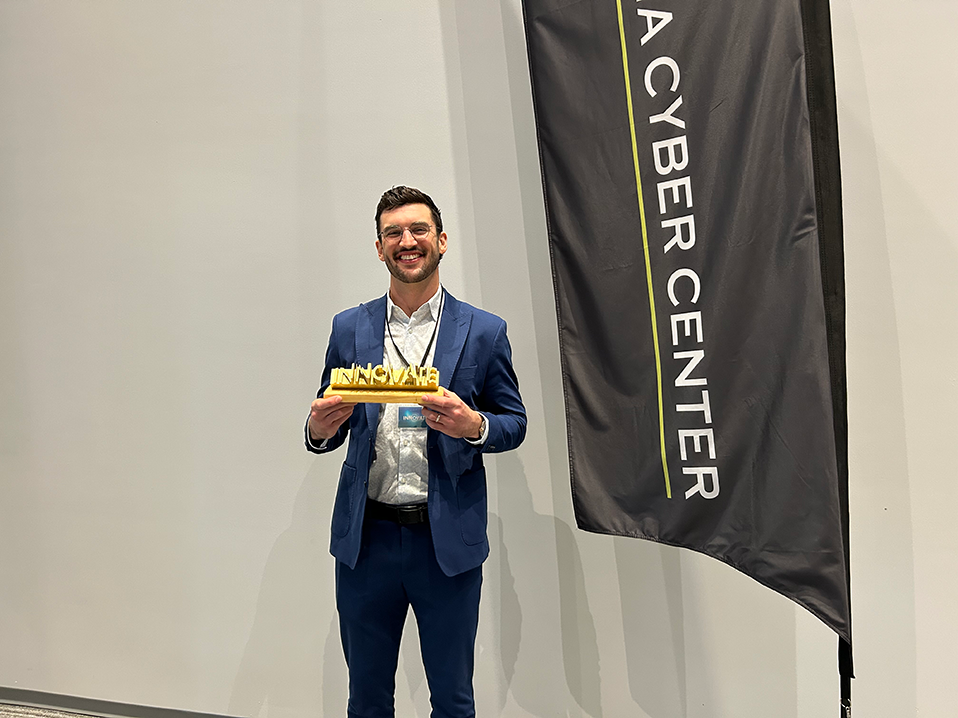
Undergraduate winner Patrick Rimbey, a cybersecurity engineering major with a focus in physics, won for his pitch for AeroSniff. It all started with a conversation over truffle fries and a push from one of his professors, Guido Verbeck, PhD, in the College of Science and Mathematics.
AeroSniff is an air quality chemical sensor designed to be easy to use and cost-efficient. It could be used by utility companies, for example, to help detect a gas leak or perhaps one day to “sniff out” truffles in place of the pigs and dogs currently doing that work.
“There were so many good designs here. I’m just honored to be first,” said Rimbey, who was not only thrilled to win but also enthusiastic about collaborating with other winners like Covert, whose work inspired him.
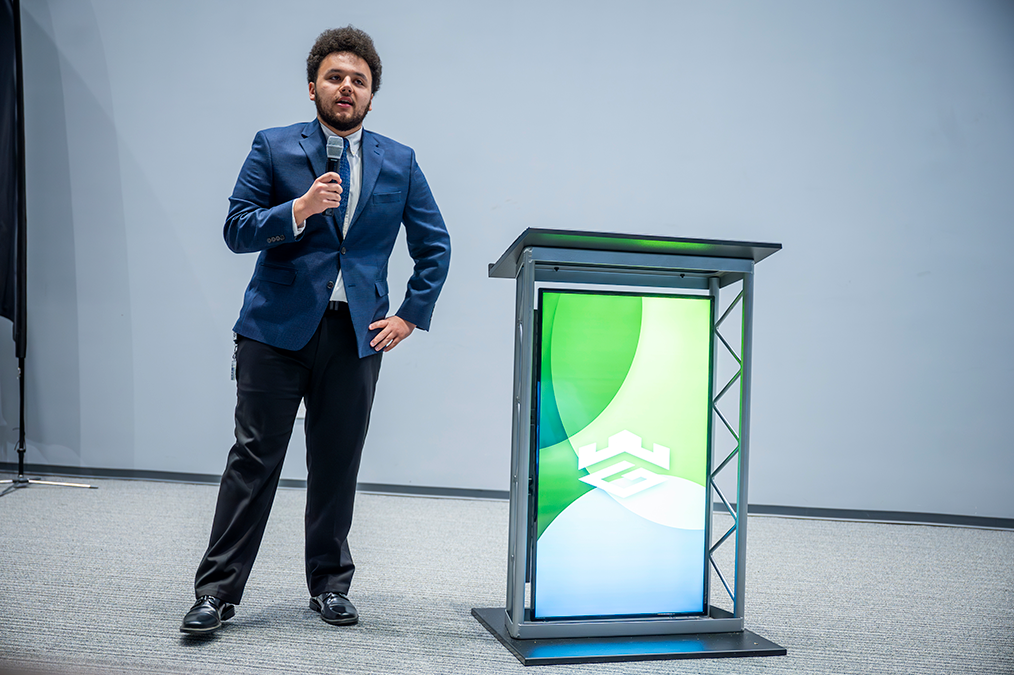
That collaboration is one of the most inspiring aspects of the pitch competition for Lynsey Steinberg, director of Innovation with Strategic Partnerships and Economic Development at AU.
“It is a catalyst for participants who are genuinely inspired by each other’s ideas and spurs collaboration to bring those ideas to life,” said Steinberg. “The competition supports building a community of thinkers who elevate one another.”
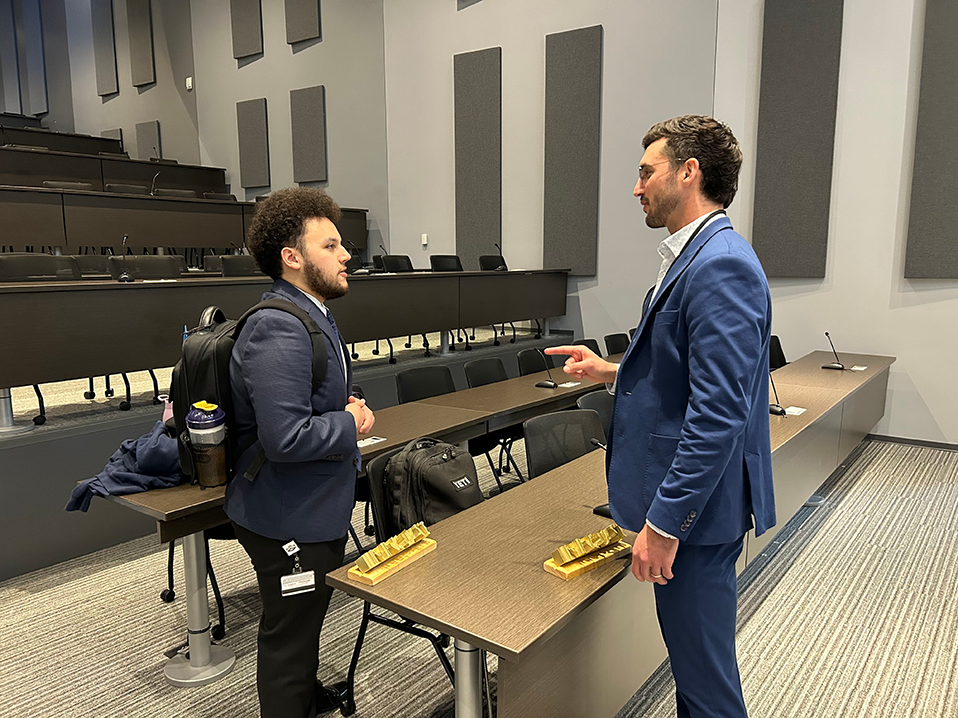
What’s next
In addition to the new entrepreneur award, a partnership was established with the Augusta Metro Chamber of Commerce through which each participating team will have the opportunity to attend one of four Member Economic Luncheons of their choice. The top three winning teams from each category also earned the opportunity to present their ideas to the chamber’s Board of Directors, which consists of 30 prominent business executives from the Greater Augusta area.
A dinner is planned later this month in downtown Augusta for the winners to network with local entrepreneurs and past winners to provide networking opportunities and help establish mentorships.
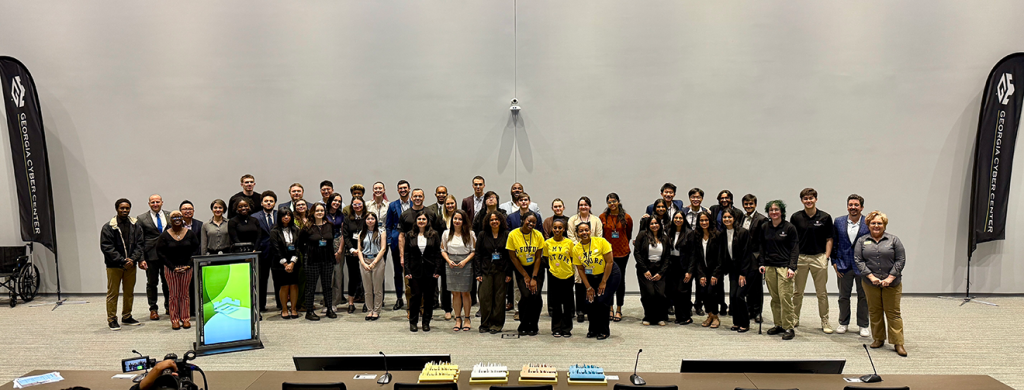
More than the $5,000 in first prize money that Andrews and the other winners walked away with, it’s those connections and the potential for networking and mentorship opportunities he’s most excited about.
“The money will help us create more content and beef up our artificial intelligence features, but it’s about connecting with people. I want people to see what we have built,” said Andrews. “After I won this, I had people coming up to me who have family members with autism, wanting to try the app. This is my way of getting the word out to help people. Because the problem is so huge, and it’s not going away.”
 Augusta University
Augusta University
